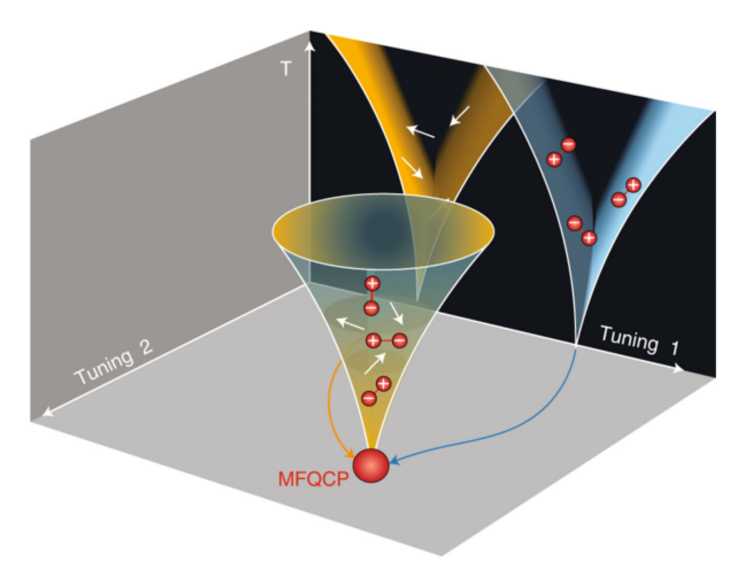Multiferroic Quantum Criticality
Researchers from Materials Theory (Awadhesh Narayan and Nicola Spaldin), in collaboration with colleagues at Nordita, Stockholm (Alexander Balatsky) and Institut Neel, Grenoble (Andres Cano) have introduced the new concept of multiferroic quantum criticality, in which both magnetic and ferroelectric quantum critical behaviour occur in the same system.

Phase transitions occur all around us – water turning to steam is an example that we encounter every day. Most such transitions are driven by adding or removing heat from a material. A special kind of phase transition can occur at absolute zero of temperature by changing something other than temperature – this is called a quantum phase transition. Although it occurs at zero temperature, its effects can be seen at high temperatures and is thought to be responsible for exotic properties such as high temperature superconductivity.
Until recently quantum phase transitions were discussed only in the context of magnets. Very recently, the ferroelectric counterpart has been demonstrated, where instead of spins we have electric dipoles which go from being ordered to disordered. In this work, the researchers unify these two types of quantum phases and introduce the concept of multiferroic quantum criticality. They show that combining quantum fluctuations of spins with that of electric dipoles, in a class of materials called multiferroics, leads to new kinds of phenomena, which are unexpected from either magnetic or ferroelectric systems on their own. They also propose specific materials and strategies, which are experimentally readily accessible, to demonstrate this quantum behaviour.
You can read more about this work in the current issue of external page Nature Materials Reference
A. Narayan, A. Cano, A. V. Balatsky, and N. A. Spaldin, Multiferroic quantum criticality, Nature Materials 18, 223-228 (2019). Nature Materials. external page DOI:10.1038/s41563-018-0255-6